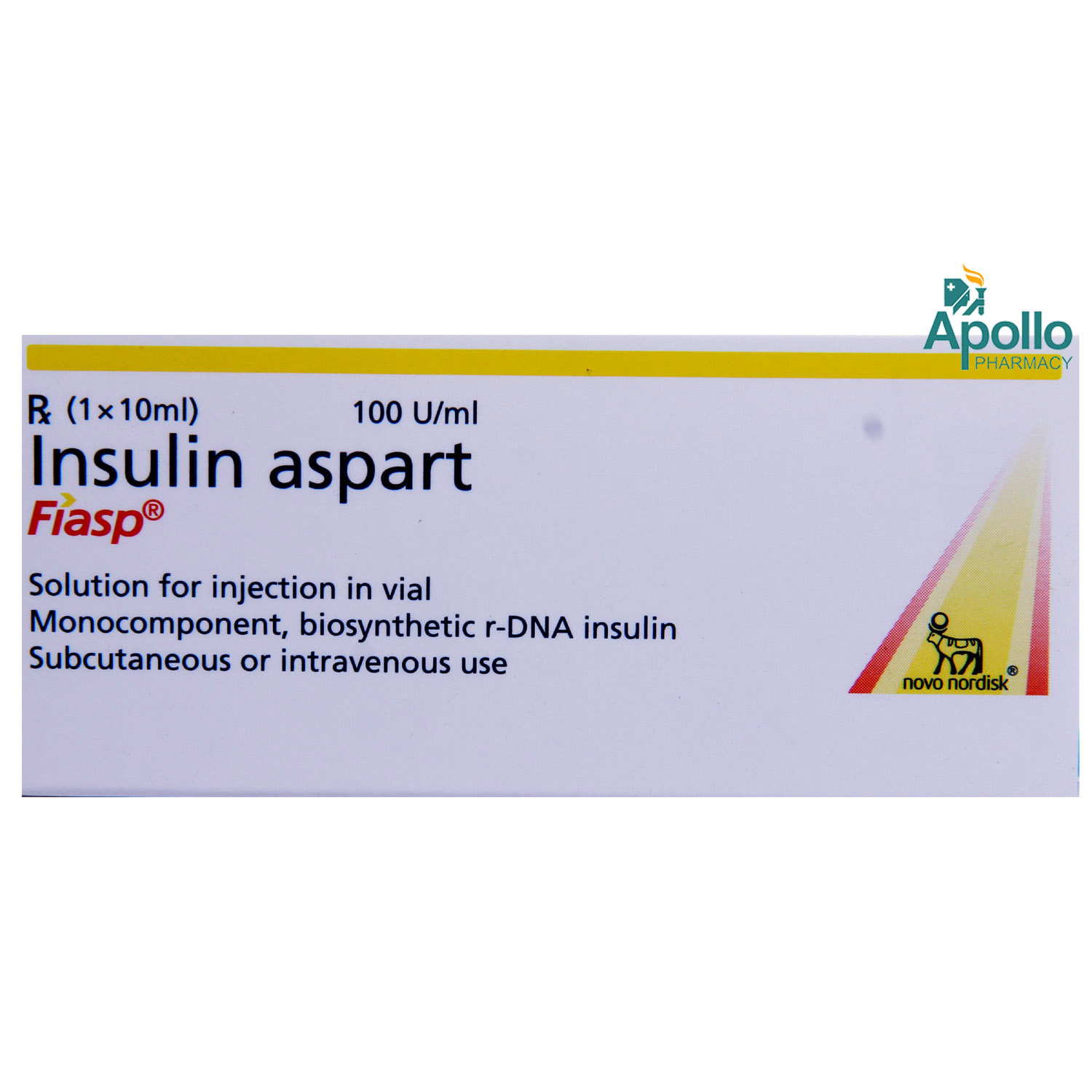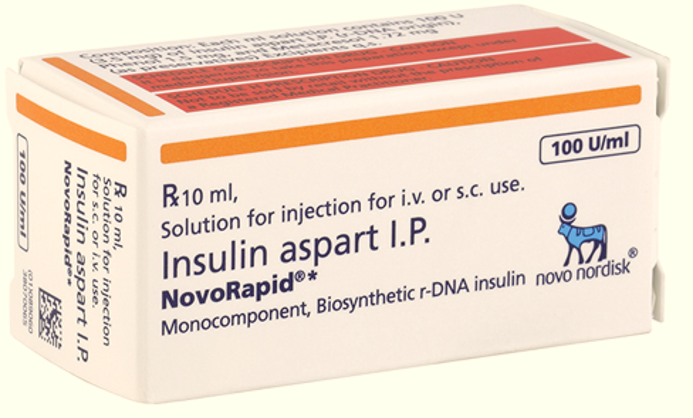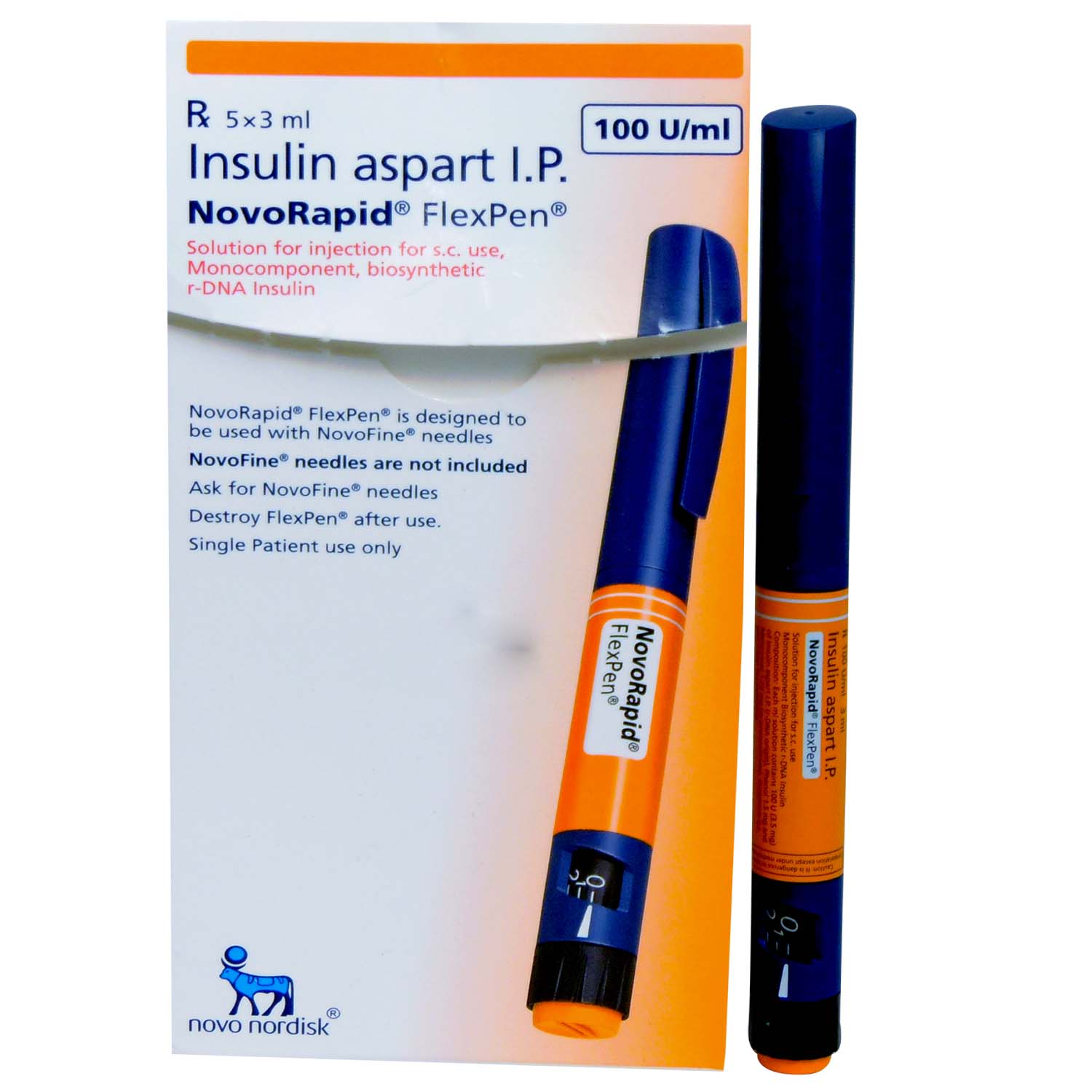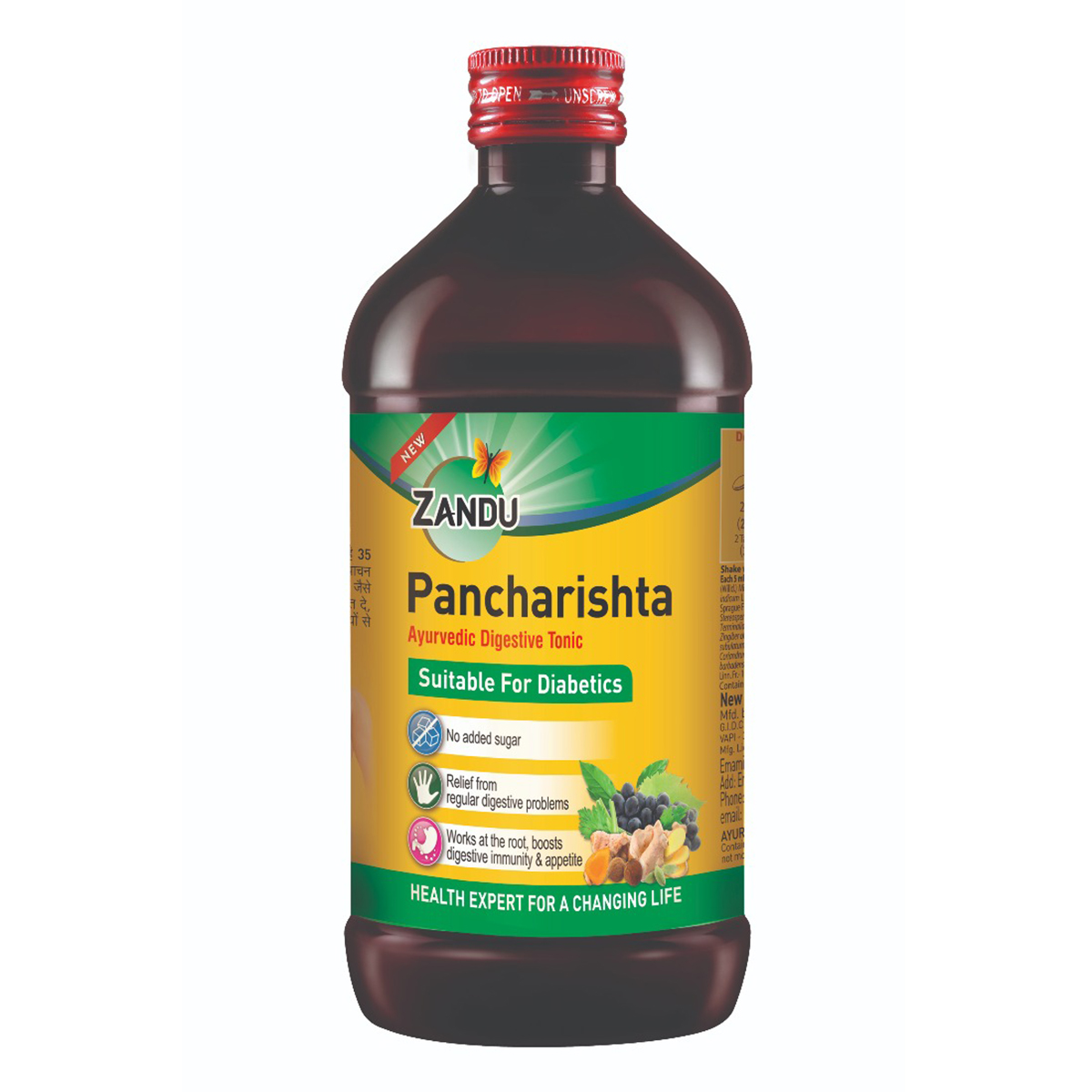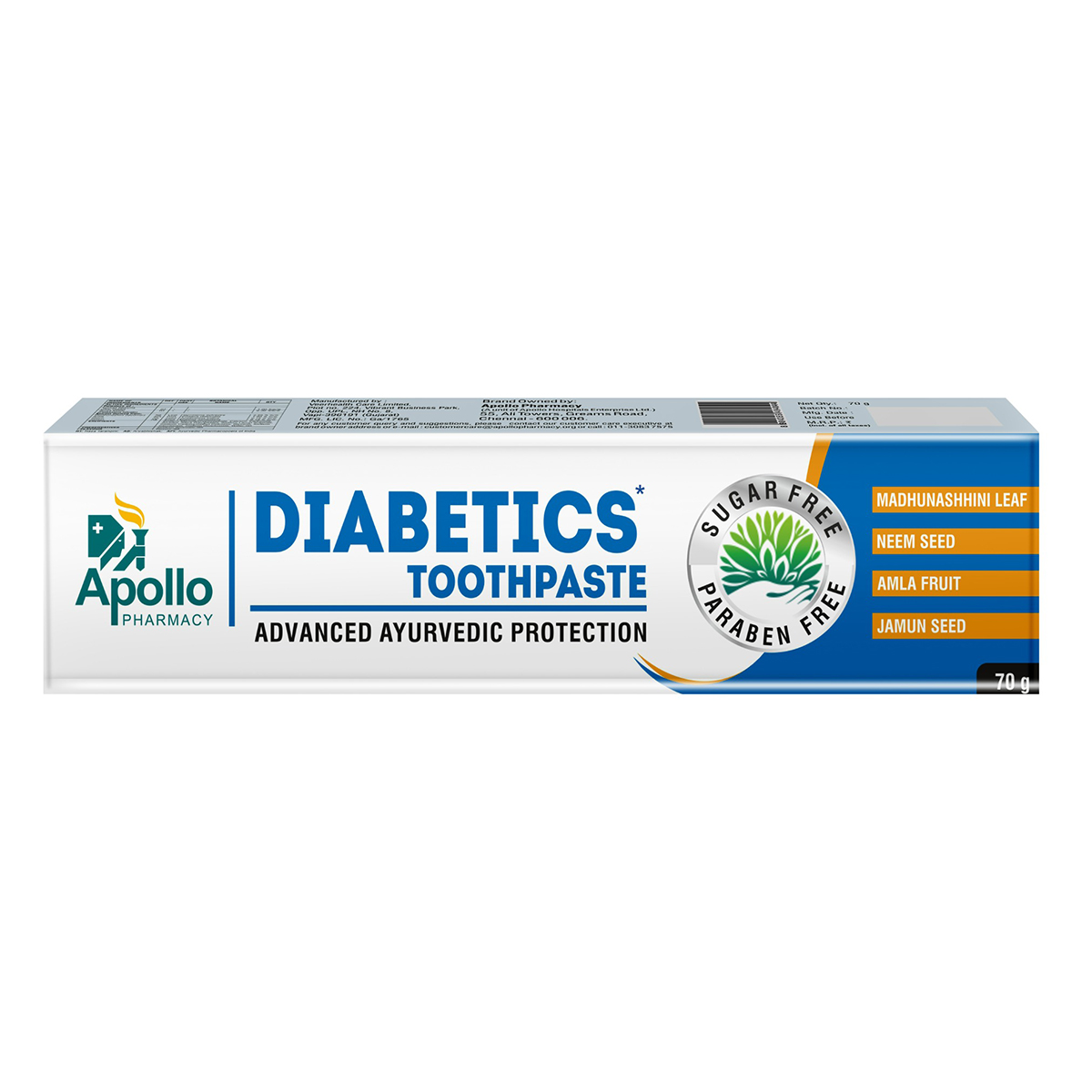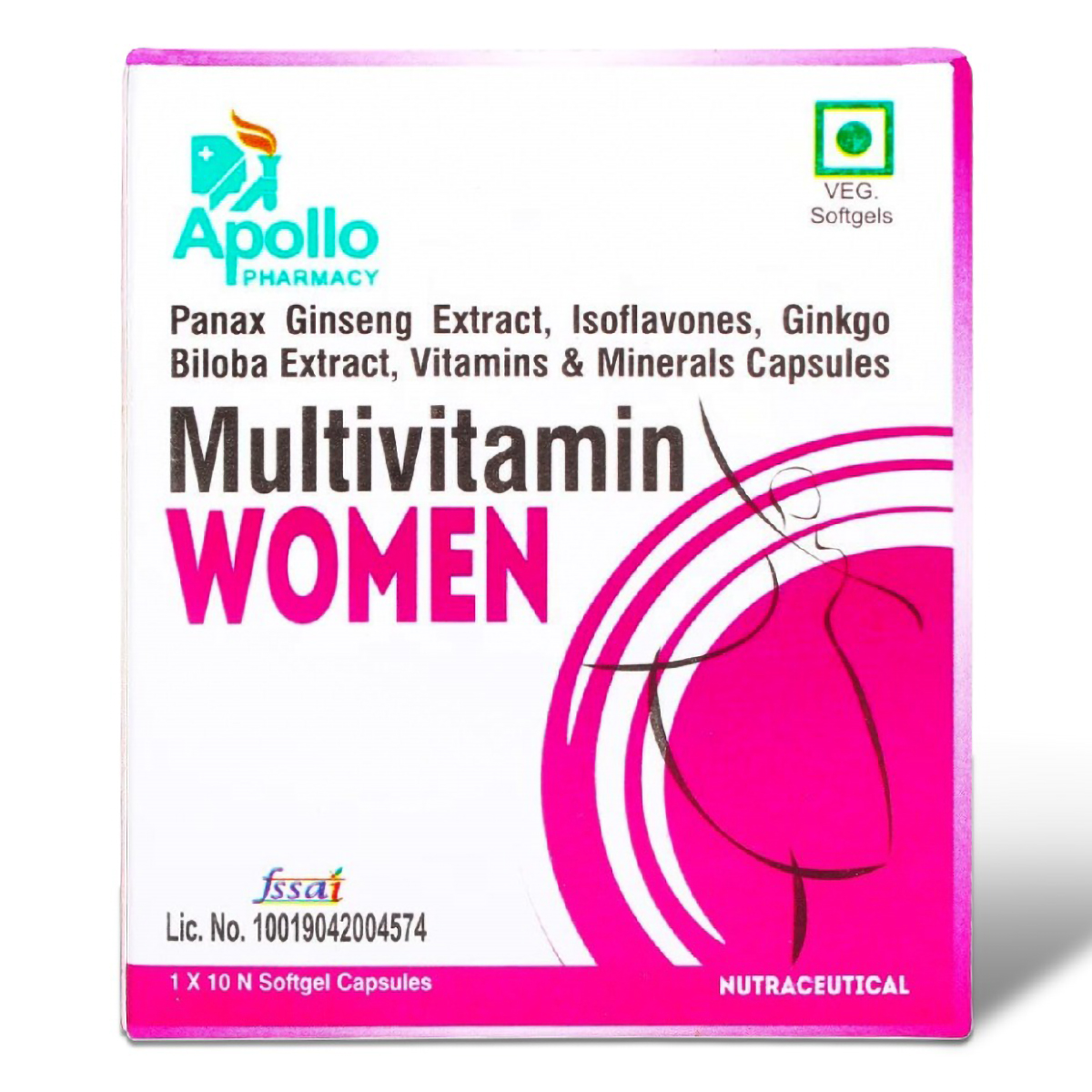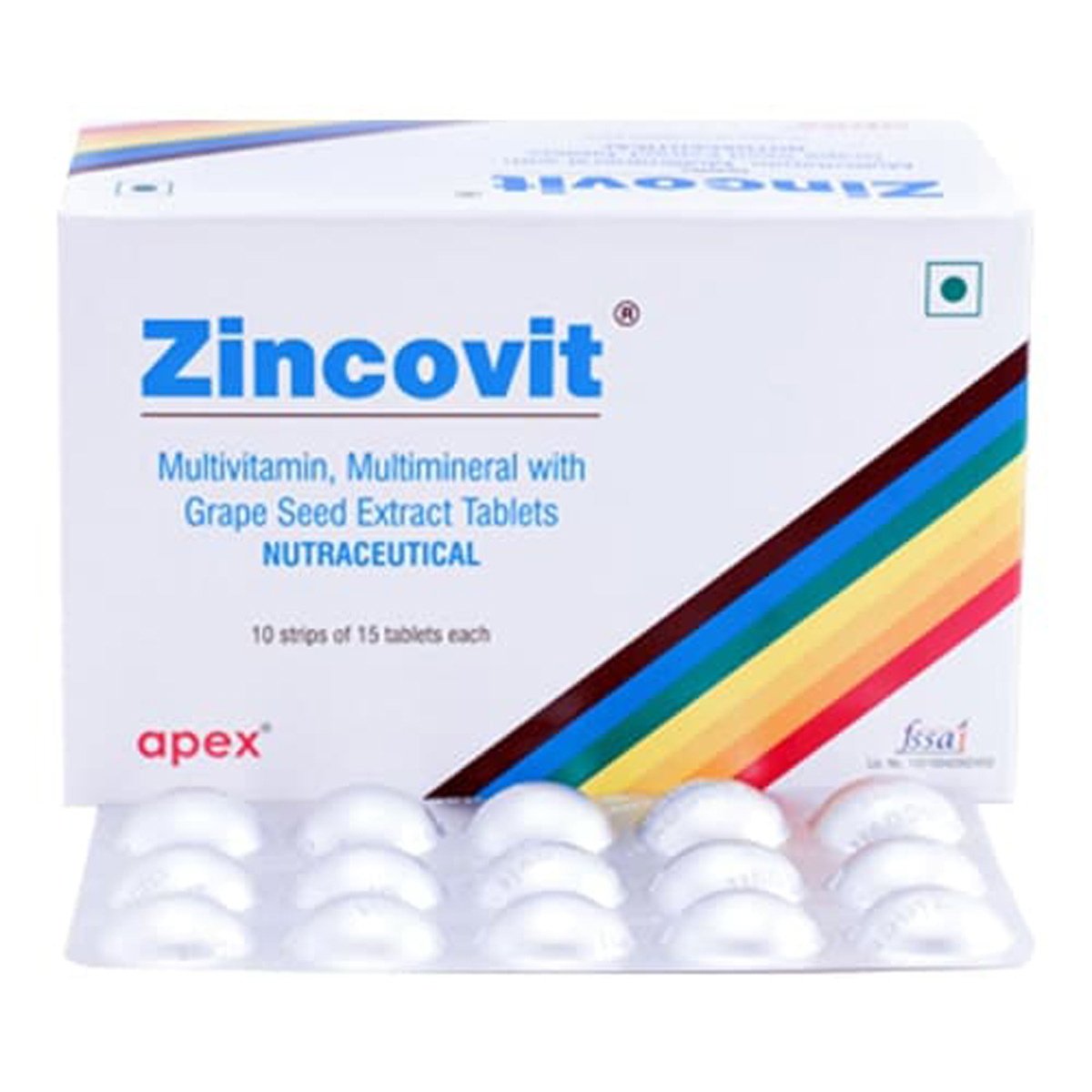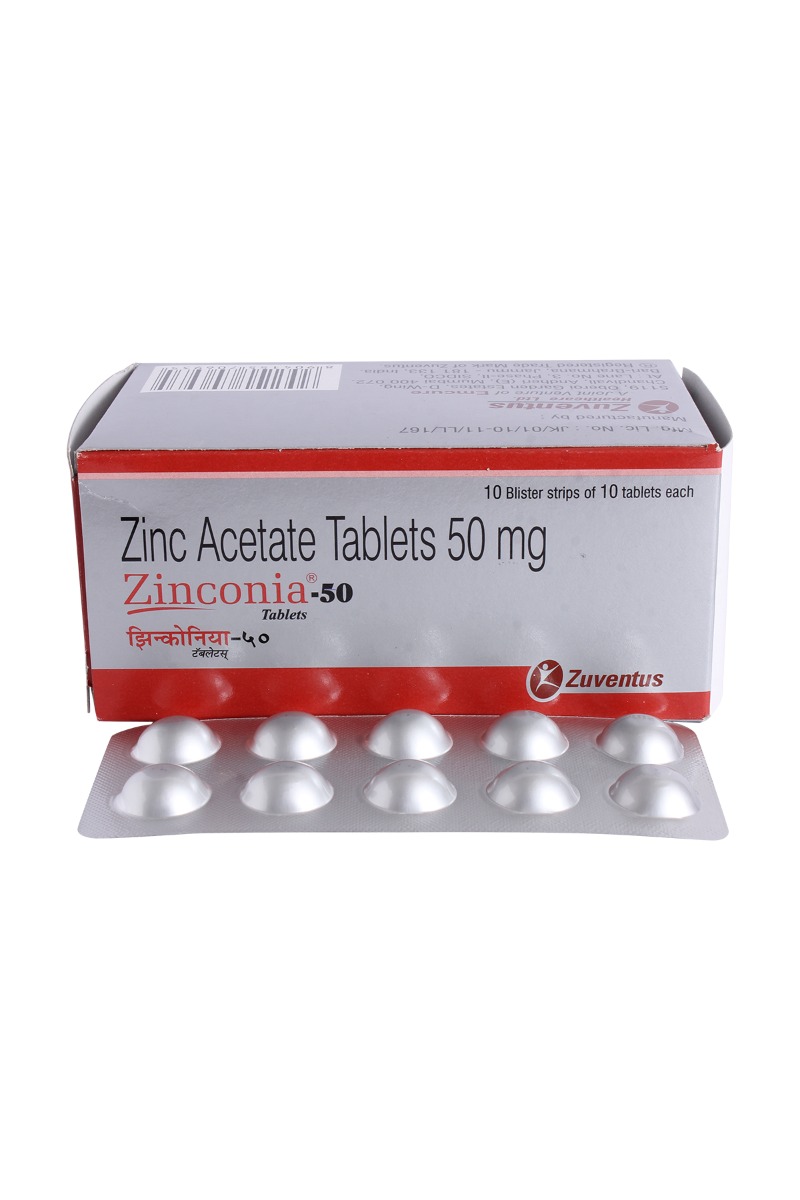Insuquick VD Pen 100U/ml Injection 3 ml


MRP ₹1006.5
(Inclusive of all Taxes)
₹151.0 Cashback (15%)
know your delivery time
Provide Delivery Location
Composition :
Manufacturer/Marketer :
Consume Type :
Expires on or after :
Return Policy :

Secure Payment

Trusted by 8 Crore Indians

Genuine Products
Therapeutic Class
Country of origin
Manufacturer/Marketer address
Author Details
We provide you with authentic, trustworthy and relevant information
FAQs
Insuquick VD Pen 100U/ml Injection 3 ml typically begins working after 10-20 minutes, and will last for between 3 and 5 hours.
Insuquick VD Pen 100U/ml Injection 3 ml can be given to treat both the condition of type 1 and type 2 diabetes mellitus. However, your doctor will decide whether Insuquick VD Pen 100U/ml Injection 3 ml can be given to you or not depending on your present condition. Insuquick VD Pen 100U/ml Injection 3 ml should be avoided in patients who are allergic to Insuquick VD Pen 100U/ml Injection 3 ml or other forms of insulin, patients with kidney disease, liver disease, low blood sugar/glucose level (hypoglycaemia), and low potassium level (hypokalaemia).
Try to avoid intake of alcoholic beverages with Insuquick VD Pen 100U/ml Injection 3 ml as it may increase or decrease your blood sugar level.
Cold sweat; cool pale skin; headache; rapid heartbeat; feeling sick; feeling very hungry; temporary vision changes; drowsiness; unusual tiredness and weakness; nervousness or tremor; feeling anxious; feeling confused; difficulty in concentrating are some of the common signs of the low blood sugar level in an individual.
If you experience low blood sugar, eat glucose tablets or another high sugar snack (e.g. sweets, biscuits, fruit juice). Measure your blood sugar if possible and rest. Always carry glucose tablets or high sugar snacks with you. You should give a call to any of your family members if you are feeling dizziness or drowsiness.
Local allergic reactions (pain, redness, hives, inflammation, bruising, swelling and itching) at the injection site may occur. These usually disappear after a few weeks of taking your insulin. If they do not disappear, or if they spread throughout your body, talk to your doctor immediately.
Disclaimer
Alcohol
Safe if prescribed
You are recommended not to consume alcohol along with Insuquick VD Pen 100U/ml Injection 3 ml to avoid unpleasant side-effects. Alcohol may either decrease or increase the blood sugar level which can be fatal.
Pregnancy
Consult your doctor
Insuquick VD Pen 100U/ml Injection 3 ml can be used during pregnancy. Your insulin dose may need to be changed during pregnancy and after delivery.
Breast Feeding
Consult your doctor
Insuquick VD Pen 100U/ml Injection 3 ml can be given safely to nursing mothers but only under the supervision of a physician.
Driving
Safe if prescribed
Drive with caution, Insuquick VD Pen 100U/ml Injection 3 ml usually causes drowsiness and affects driving ability. Your ability to concentrate and react may be reduced if you have hypoglycaemia (low blood sugar).
Liver
Consult your doctor
Insuquick VD Pen 100U/ml Injection 3 ml to be taken with caution, especially if you have a history of liver diseases/conditions. The dose may have to be adjusted by your doctor.
Kidney
Consult your doctor
Insuquick VD Pen 100U/ml Injection 3 ml to be taken with caution, especially if you have a history of kidney diseases/conditions. The dose may have to be adjusted by your doctor.
Children
Safe if prescribed
Insuquick VD Pen 100U/ml Injection 3 ml can be given safely to children provided; dose has to be prescribed by a child specialist.
Product Substitutes
Keep Refrigerated. Do not freeze.
About Insuquick VD Pen 100U/ml Injection 3 ml
Insuquick VD Pen 100U/ml Injection 3 ml is a rapid-acting human insulin analogue for the treatment of diabetes mellitus in both children (above two years of age) and adults. The active ingredient in Insuquick VD Pen 100U/ml Injection 3 ml is insulin aspart. Diabetes is a medical condition where your body does not produce enough insulin to control your blood sugar level. Treatment with Insuquick VD Pen 100U/ml Injection 3 ml helps to prevent complications from your diabetes.
When Insuquick VD Pen 100U/ml Injection 3 ml is injected, it is extremely fast-acting and works rapidly to normalise blood sugar levels. It typically begins working after 10-20 minutes and will last for between 3 and 5 hours. Due to this short action, Insuquick VD Pen 100U/ml Injection 3 ml should normally be taken in combination with intermediate-acting or long-acting insulin preparations. Insuquick VD Pen 100U/ml Injection 3 ml works by ensuring rapid and consistent sugar control. Insuquick VD Pen 100U/ml Injection 3 ml is a fast-acting form of insulin that helps lower blood sugar levels after food intake. Prevents the risk of having severe complications of diabetes. It stimulates the recovery of sugar in muscle and fat cells and thus suppresses sugar production in the liver.
Your doctor will advise you on how to use Insuquick VD Pen 100U/ml Injection 3 ml. It should be administered at least 5-10 minutes before the meal or within 20 minutes after you start having a meal. The common side effects of Insuquick VD Pen 100U/ml Injection 3 ml are hypokalaemia (low potassium), hypoglycaemia (low blood sugar level), local injection site reactions, lipodystrophy (fat deposition under the skin), rash, and pruritus (itch skin), which may occur at the injection site. Most of these side effects of Insuquick VD Pen 100U/ml Injection 3 ml do not require medical attention and gradually resolve over time. However, if the side effects are persistent, reach out to your doctor.
Try not to stop taking Insuquick VD Pen 100U/ml Injection 3 ml of your own. Let your doctor know about this, as it may cause withdrawal symptoms. Do not take Insuquick VD Pen 100U/ml Injection 3 ml if you have any low blood glucose levels, kidney, liver, or heart problems, or problems with alcohol or other prescription recreational drugs. Along with Insuquick VD Pen 100U/ml Injection 3 ml, you should take a healthy diet, exercise regularly, and maintain weight as your doctor advises. Insuquick VD Pen 100U/ml Injection 3 ml is a cold chain medicine, so it must be stored in the refrigerator between 2-8 degrees Celsius; otherwise, its efficiency might get lost. Do not store it in the freezer of the fridge.
Uses of Insuquick VD Pen 100U/ml Injection 3 ml
Medicinal Benefits Mweb
Key Benefits
Insuquick VD Pen 100U/ml Injection 3 ml works by ensuring rapid and consistent sugar control. Insuquick VD Pen 100U/ml Injection 3 ml is a fast-acting form of insulin that helps lower blood sugar levels after the intake of food. Prevents the risk of having severe complications of diabetes. It stimulates the recovery of sugar in muscle and fat cells and thus suppresses sugar production in the liver. Insuquick VD Pen 100U/ml Injection 3 ml helps in improving the glycaemic control, which in turn decreases the risk of progression of complications of diabetes like damage to the retina (retinopathy), damage to the kidney (nephropathy), impairment of nerve cells (neuropathy), delayed wound healing, diabetic foot ulcer and others. Besides this, Insuquick VD Pen 100U/ml Injection 3 ml can be safely prescribed to the diabetic mother during pregnancy and lactation.
Directions for Use
Side Effects of Insuquick VD Pen 100U/ml Injection 3 ml
- Hypokalaemia (low potassium)
- Hypoglycaemia (low blood sugar level)
- Local injection site reactions
- Lipodystrophy (fat deposition under the skin)
- Rash
- Pruritus (itchy skin)
Drug Warnings
Insuquick VD Pen 100U/ml Injection 3 ml is for subcutaneous (under the skin) use only and should never be administered intravenously (IV) or in the veins. If you are changing the brand of insulin or if you need to inject your insulin by another method, it should be done under strict medical supervision. Cases of heart failure were reported when pioglitazone was used with insulin, especially in patients at high risk of cardiac heart failure. The first symptoms of hyperglycaemia (high blood sugar level) may include symptoms like excessive thirst, dry mouth, increased frequency of urination, nausea, vomiting, drowsiness, flushed dry skin, loss of appetite and acetone odour of the breath. You should closely monitor these symptoms. Symptoms like heart failure, weight gain and oedema (fluid deposition in tissue) should not be overruled. It is advisable not to consume alcohol as it may either increase or decrease your blood glucose level. Care should be taken while travelling across more than two time zones. Your doctor may adjust your insulin schedule. Insuquick VD Pen 100U/ml Injection 3 ml may decrease the level of potassium, leading to a state of hypokalaemia that, if left untreated, may lead to respiratory paralysis, irregular heartbeat rhythm, coma and even death. Do not take Insuquick VD Pen 100U/ml Injection 3 ml if you have any low blood glucose levels, kidney, liver, or heart problems, or problems with alcohol or other prescription recreational drugs.
Drug-Drug Interactions
Drug-Drug Interactions
Login/Sign Up
Taking Insuquick VD Pen 100U/ml Injection 3 ml with cinoxacin affects blood glucose levels. Both hyperglycemia (high blood glucose) and, less frequently, hypoglycemia(low blood glucose).
How to manage the interaction:
Although there is a interaction between Insuquick VD Pen 100U/ml Injection 3 ml and Cinoxacin but can be taken if prescribed by a doctor. However, consult the doctor immediately if you experience symptoms of hypoglycemia, which include headache, dizziness, drowsiness, nervousness, confusion, tremor, nausea, hunger, weakness, perspiration, palpitation, and rapid heartbeat, symptoms of hyperglycemia, which include increased thirst, increased hunger, and increased urination. Do not stop using any medications without first talking to your doctor.
Taking Insuquick VD Pen 100U/ml Injection 3 ml with nalidixic acid affects blood glucose levels. Both hyperglycemia (high blood glucose) and, less frequently, hypoglycemia have been reported.
How to manage the interaction:
There could be a possible interaction between Insuquick VD Pen 100U/ml Injection 3 ml and Nalidixic acid but can be taken if prescribed by a doctor. However, consult the doctor immediately if you experience symptoms of hypoglycemia, which include headache, dizziness, drowsiness, nervousness, confusion, tremor, nausea, hunger, weakness, perspiration, palpitation, and rapid heartbeat, or symptoms of hyperglycemia which may include increased thirst, increased hunger, and increased urination. Do not stop using any medications without first talking to your doctor.
Taking Insuquick VD Pen 100U/ml Injection 3 ml with Enoxacin affects blood glucose levels. Both hyperglycemia (high blood glucose) and, less frequently, hypoglycemia have been reported.
How to manage the interaction:
There could be a possible interaction between Insuquick VD Pen 100U/ml Injection 3 ml and enoxacin but can be taken if prescribed by a doctor. However, consult the doctor immediately if you experience symptoms of hypoglycemia, which include headache, dizziness, drowsiness, nervousness, confusion, tremor, nausea, hunger, weakness, perspiration, palpitation, and rapid heartbeat, or symptoms of hyperglycemia which may include increased thirst, increased hunger, and increased urination. Do not stop using any medications without first talking to your doctor.
Taking Insuquick VD Pen 100U/ml Injection 3 ml with ciprofloxacin affects blood glucose levels. Both hyperglycemia (high blood glucose) and, less frequently, hypoglycemia(low blood glucose).
How to manage the interaction:
Although taking ciprofloxacin and Insuquick VD Pen 100U/ml Injection 3 ml together can possibly result in an interaction, it can be taken if your doctor has prescribed it. However, consult a doctor if you experience headaches, dizziness, sleepiness, anxiety, disorientation, tremors, nausea, hunger, weakness, increased sweat, and a rapid heartbeat, increased hunger, thirst, and urine. It is recommended to maintain blood glucose levels.
Taking Insuquick VD Pen 100U/ml Injection 3 ml with carvedilol may increase the therapeutic efficacy of carvedilol.
How to manage the interaction:
There could be a possible interaction between Insuquick VD Pen 100U/ml Injection 3 ml and carvedilol but can be taken if prescribed by a doctor. However, consult the doctor immediately if you experience any unusual symptoms like shaking, palpitations, rapid heartbeat. Do not stop any medications without consulting a doctor.
Taking Insuquick VD Pen 100U/ml Injection 3 ml with norfloxacin affects blood glucose levels. Both hyperglycemia (high blood glucose) and, less frequently, hypoglycemia have been reported.
How to manage the interaction:
There could be a possible interaction between Insuquick VD Pen 100U/ml Injection 3 ml and norfloxacin but can be taken if prescribed by a doctor. However, consult the doctor immediately if you experience symptoms such as headache, dizziness, drowsiness, nervousness, confusion, tremors, nausea, hunger, weakness, sweating, palpitation, rapid heartbeat, increased thirst, increased hunger, and increased urination. Do not stop using any medications without talking to a doctor.
Taking Bumetanide with Insuquick VD Pen 100U/ml Injection 3 ml may interfere with blood glucose control and reduce the effectiveness of Insuquick VD Pen 100U/ml Injection 3 ml.
How to manage the interaction:
Although there is a interaction between Insuquick VD Pen 100U/ml Injection 3 ml and bumetanide, but can be taken if prescribed by a doctor. However, consult the doctor immediately if you experience symptoms such as excessive thirst and increase in the volume or frequency of urination. Monitor your blood sugar levels closely. Do not stop any medications without first talking to your doctor.
Taking Insuquick VD Pen 100U/ml Injection 3 ml with Grepafloxacin affects blood glucose levels. Both hyperglycemia (high blood glucose) and, less frequently, hypoglycemia have been reported.
How to manage the interaction:
There could be a possible interaction between Insuquick VD Pen 100U/ml Injection 3 ml and grepafloxacin but can be taken if prescribed by a doctor. However, consult the doctor immediately if you experience hypoglycemia or hyperglycemia. Symptoms of hypoglycemia include headache, dizziness, drowsiness, nervousness, confusion, tremor, nausea, hunger, weakness, perspiration, palpitation, and rapid heartbeat. Symptoms of hyperglycemia may include increased thirst, increased hunger, and increased urination. Do not stop using any medications without first talking to your doctor.
Taking Insuquick VD Pen 100U/ml Injection 3 ml with Gatifloxacin affects blood glucose levels, hyperglycemia (high blood glucose) and, less frequently, hypoglycemia.
How to manage the interaction:
There could be a possible interaction between Insuquick VD Pen 100U/ml Injection 3 ml and gatifloxacin but can be taken if prescribed by a doctor. However, consult the doctor immediately if you experience symptoms of hypoglycemia which include headache, dizziness, drowsiness, nervousness, confusion, tremor, nausea, hunger, weakness, perspiration, palpitation, and rapid heartbeat, or symptoms of hyperglycemia which may include increased thirst, increased hunger, and increased urination. Do not stop using any medications without first talking to a doctor.
Taking Insuquick VD Pen 100U/ml Injection 3 ml with Trovafloxacin affects blood glucose levels. Both hyperglycemia (high blood glucose) and, less frequently, hypoglycemia have been reported.
How to manage the interaction:
There could be a possible interaction between Insuquick VD Pen 100U/ml Injection 3 ml and Trovafloxacin but can be taken if prescribed by a doctor. However, consult the doctor immediately if you experience symptoms of hypoglycemia, which include headache, dizziness, drowsiness, nervousness, confusion, tremor, nausea, hunger, weakness, perspiration, palpitation, and rapid heartbeat, or symptoms of hyperglycemia which may include increased thirst, increased hunger, and increased urination. Do not stop using any medications without first talking to your doctor.
Drug-Food Interactions
Drug-Food Interactions
Login/Sign Up
Drug-Diseases Interactions
Drug-Diseases Interactions
Login/Sign Up
Drug-Drug Interactions Checker List
- ASPIRIN
- FUROSEMIDE
- METOPROLOL
- LEVOTHYROXINE SODIUM
Habit Forming
Special Advise
- Your doctor may tell you to have a normal potassium level as prolonged administration causes a life-threatening condition of hypokalemia (low potassium).
- Always sterilize the injection site before administration of the drug.
Diet & Lifestyle Advise
- Exercise may lower your body’s need for insulin during and sometimes after physical activity.
- Exercise may also speed up the effect of an insulin dose, especially if the exercise involves the area of the injection site (for example, the leg should not be used for injection just before running).
- Discuss with your doctor how to adjust your insulin regimen to accommodate exercise.
- Avoid eating sugar food and prefer food cooked food low in calories.
- When travelling across more than two time zones, you should talk to your doctor concerning adjustments in your insulin schedule.
All Substitutes & Brand Comparisons
RX
Fiasp 100IU Injection 10 ml
Novo Nordisk India Pvt Ltd
₹2223
(₹222.3/ 1ml)
33% CHEAPERRX
Insuquick 100U/ml Injection 10 ml
USV Pvt Ltd
₹2321
(₹232.1/ 1ml)
30% CHEAPERRX
Novorapid 100IU Injection 10 ml
Novo Nordisk India Pvt Ltd
₹2553
(₹255.3/ 1ml)
23% CHEAPER

Have a query?
Buy best Diabetics products by
Torrent Pharmaceuticals Ltd
Sun Pharmaceutical Industries Ltd
Eris Life Sciences Ltd
Intas Pharmaceuticals Ltd
Lupin Ltd
Micro Labs Ltd
Mankind Pharma Pvt Ltd
Lloyd Healthcare Pvt Ltd
Alkem Laboratories Ltd
Abbott India Ltd
Glenmark Pharmaceuticals Ltd
Cipla Ltd
Macleods Pharmaceuticals Ltd
Wockhardt Ltd
Dr Reddy's Laboratories Ltd
Primus Remedies Pvt Ltd
USV Pvt Ltd
Aristo Pharmaceuticals Pvt Ltd
Emcure Pharmaceuticals Ltd
Alembic Pharmaceuticals Ltd
Ipca Laboratories Ltd
La Renon Healthcare Pvt Ltd
Ajanta Pharma Ltd
Medley Pharmaceuticals Ltd
East West Pharma India Pvt Ltd
Elbrit Life Sciences Pvt Ltd
Corona Remedies Pvt Ltd
Hbc Life Sciences Pvt Ltd
Sinsan Pharmaceuticals Pvt Ltd
Ranmarc Labs
Mitoch Pharma Pvt Ltd
Zydus Healthcare Ltd
Sanofi India Ltd
Akumentis Healthcare Ltd
Fusion Health Care Pvt Ltd
Unison Pharmaceuticals Pvt Ltd
Jubilant Lifesciences Ltd
Novo Nordisk India Pvt Ltd
Tas Med India Pvt Ltd
Blue Cross Laboratories Pvt Ltd
Msn Laboratories Pvt Ltd
Eswar Therapeutics Pvt Ltd
Indoco Remedies Ltd
Q Check Pharmaceuticals
Alteus Biogenics Pvt Ltd
Anthem Bio Pharma
Franco Indian Pharmaceuticals Pvt Ltd
Systopic Laboratories Pvt Ltd
Panacea Biotec Ltd
Zydus Cadila
Biocon Ltd
Edoc Life Sciences Pvt Ltd
Koye Pharmaceuticals Pvt Ltd
Arkas Pharma Pvt Ltd
Diacardus Pharmacy Pvt Ltd
Elinor Pharmaceuticals (P) Ltd
Remedy Life Sciences Pvt Ltd
Saan Labs
Talent India Pvt Ltd
Jarun Pharmaceuticals Pvt Ltd
Capital Pharma
Shrrishti Health Care Products Pvt Ltd
FDC Ltd
Leeford Healthcare Ltd
Nirvana India Pvt Ltd
Elder Pharmaceuticals Ltd
Eli Lilly and Company (India) Pvt Ltd
Glynis Pharmaceuticals Pvt Ltd
Zuventus Healthcare Ltd
Arrient Healthcare Pvt Ltd
Cadomed Pharmaceuticals India Pvt Ltd
Orris Pharmaceuticals
Akesiss Pharma Pvt Ltd
Bal Pharma Ltd
Biochem Pharmaceutical Industries Ltd
Knoll Healthcare Pvt Ltd
Lippon Pharma Pvt Ltd
Morepen Laboratories Ltd
Neucure Lifesciences Pvt Ltd
Opsis Care Lifesciences Pvt Ltd
Wallace Pharmaceuticals Pvt Ltd
Acmedix Pharma Llp
Converge Biotech Pvt Ltd
Erinyle Pharma
Indiabulls Pharmaceuticals Pvt Ltd
Ozone Pharmaceuticals Ltd
Retra Life Science Pvt Ltd
Alvio Pharmaceuticals Pvt Ltd
Geneaid Pharmaceuticals
Heal (India) Laboratories Pvt Ltd
Olcare Laboratories Pvt Ltd
Vasu Organics Pvt Ltd
Kotak Life Sciences
Lakshya Life Sciences Pvt Ltd
Proqol Health Care Pvt Ltd
Sanz Pharmaceuticals
Daylon healthcare pvt Ltd
Mcronus Lifescience Pvt Ltd
Natco Pharma Ltd
Orsim Pharma
Frequently Bought Together
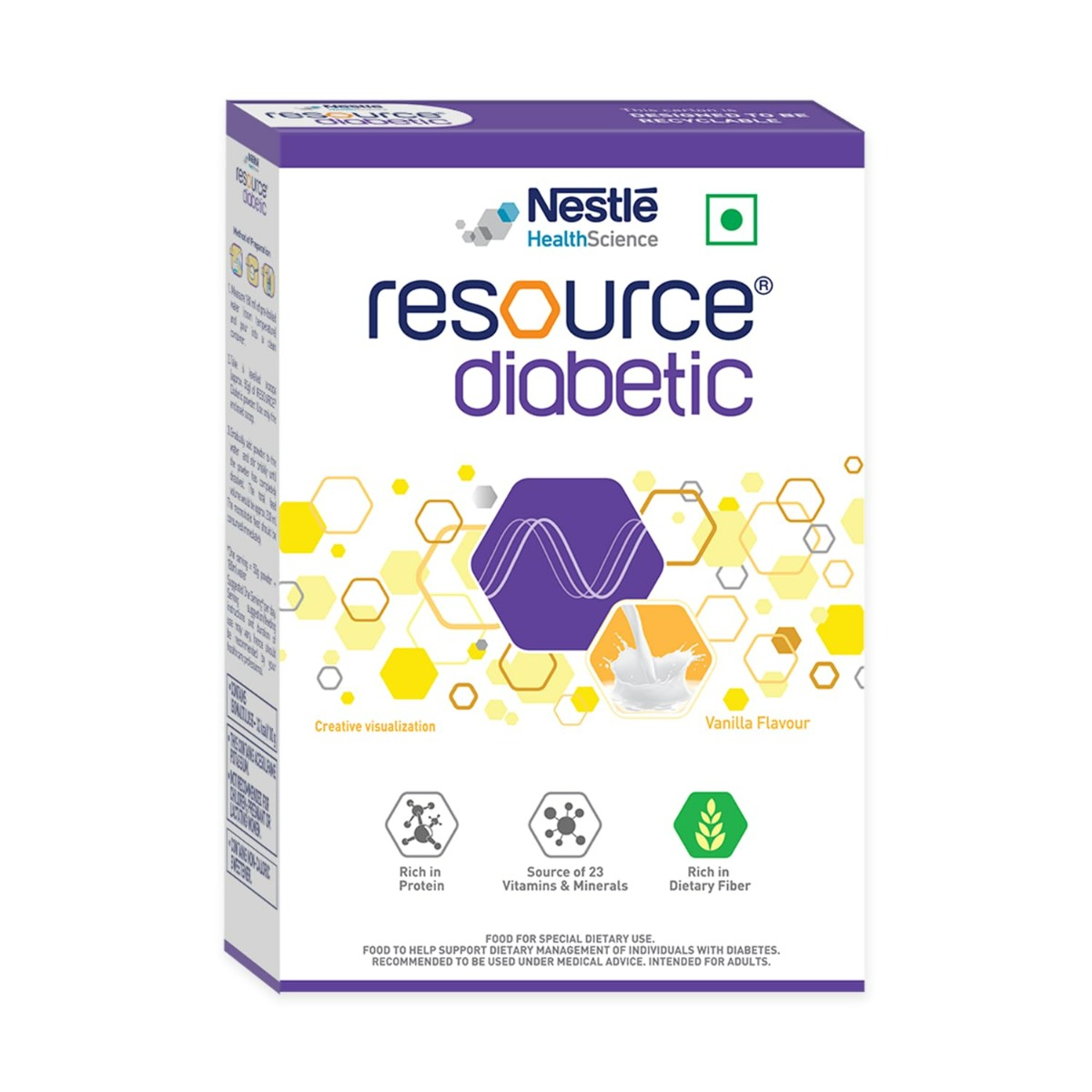
Nestle Resource Diabetic Vanilla Flavour Powder, 400 gm
400 gm Powder
Nestle India Ltd
₹758.6
MRP ₹936.5
19% off
1
+₹583.9
MRP ₹632.5
8% off
1
+₹205
MRP ₹257.5
20% off
1
+₹188.8
MRP ₹214.5
12% off
1
+₹516.6
MRP ₹561.5
8% off
1
+₹279.9
MRP ₹284.5
2% off
1
+₹37.9
MRP ₹43
12% off
30
+₹87.8
MRP ₹97.5
10% off
10
+₹135.6
MRP ₹154.5
12% off
6
+₹118.4
MRP ₹131.5
10% off
4
+₹152.1
MRP ₹169
10% off
15
+₹61.7
MRP ₹68.5
10% off
1
+₹96.8
MRP ₹107.5
10% off
15
+₹55.8
MRP ₹62
10% off
10
+₹176
MRP ₹195.5
10% off
1
+₹279.5
MRP ₹310.5
10% off
1
+Customers Also Bought



